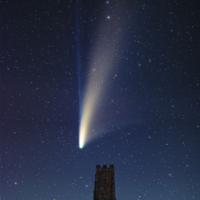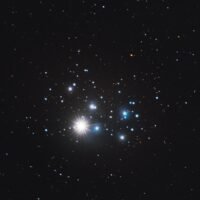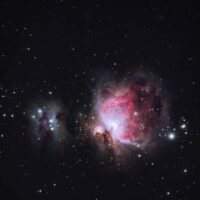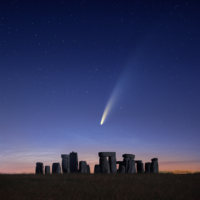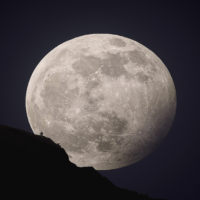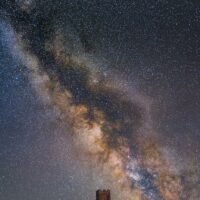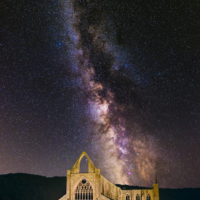Hey fellow sky watchers and photography enthusiasts! Let me tell you something exciting – artificial intelligence is about to completely transform how we capture and share those breathtaking cosmic moments.
Remember when processing a single night sky image used to take hours of painstaking work? Those days are gone! AI is like having a brilliant photography buddy who knows exactly how to clean up your shots, bring out incredible details, and make your astronomical images look absolutely mind-blowing.
Imagine this: You’ve just spent a chilly night out with your telescope, capturing some distant galaxy or nebula. In the past, you’d spend ages trying to reduce noise, align multiple exposures, and enhance those subtle cosmic details. Now? AI algorithms can do all that heavy lifting in minutes. It’s like having a super-smart digital darkroom assistant who works at lightning speed.
These machine learning models aren’t just cleaning up images – they’re becoming incredibly intelligent. They can recognize specific celestial objects, suggest the best imaging techniques, and even predict when and where you’ll get the most stunning shots. Want to photograph the Orion Nebula? Your AI assistant can tell you exactly when the conditions will be perfect.
What’s truly game-changing is how these tools are leveling the playing field. You don’t need a $50,000 professional observatory setup anymore. With some decent consumer equipment and smart AI processing, hobbyists like us can now produce images that would’ve impressed professional astronomers just a decade ago.
Let me break down some cool ways AI is transforming our astrophotography game:
- Noise Reduction Magic: AI can intelligently clean up grainy images, bringing out crisp details you never knew were hiding in your original shot.
- Intelligent Object Recognition: These tools can automatically identify and enhance specific astronomical features, from faint nebular emissions to intricate galaxy structures.
- Predictive Imaging: Machine learning algorithms can analyze weather patterns and celestial mechanics to recommend the absolute best times for capturing specific cosmic phenomena.
- Super-Resolution Techniques: Deep learning can now interpolate and reconstruct additional details from limited telescope data, effectively extending what your equipment can capture.
The best part? This isn’t some distant future technology. These AI tools are available right now, and they’re getting more sophisticated every single day. Platforms like DeepSkyStacker, AI Astro Tools, and various neural network-powered image processing software are making professional-level astrophotography accessible to everyone.
For passionate sky photographers, this is more than just a technological upgrade – it’s a revolution. We’re witnessing a moment where artificial intelligence is democratizing astronomical imaging, allowing curious hobbyists to push the boundaries of what’s possible with consumer-grade equipment.
So dust off that telescope, charge up your camera, and get ready to capture the universe like never before. The cosmos is calling, so lets go for a ride!
FAQs
1. How are neural networks aiding in astronomy?
Neural networks help in data processing, classification, and even in solving complex cosmic mysteries like the nature of dark matter.
2. What is the role of AI in data processing?
AI helps in cleaning up raw astronomical images, removing errors, and noise to produce clearer, more useful images.
3. Can AI help in discovering new celestial bodies or phenomena?
Yes, AI algorithms can flag unexpected patterns in data, which could lead to new discoveries.
4. How is AI helping in understanding dark matter and dark energy?
AI, particularly neural networks, are used to analyze the properties of these mysterious substances, aiding in our understanding of their role in the universe.
5. Are there any ethical considerations when using AI in astronomy?
Yes, responsible data handling and algorithm interpretability are key ethical considerations.








